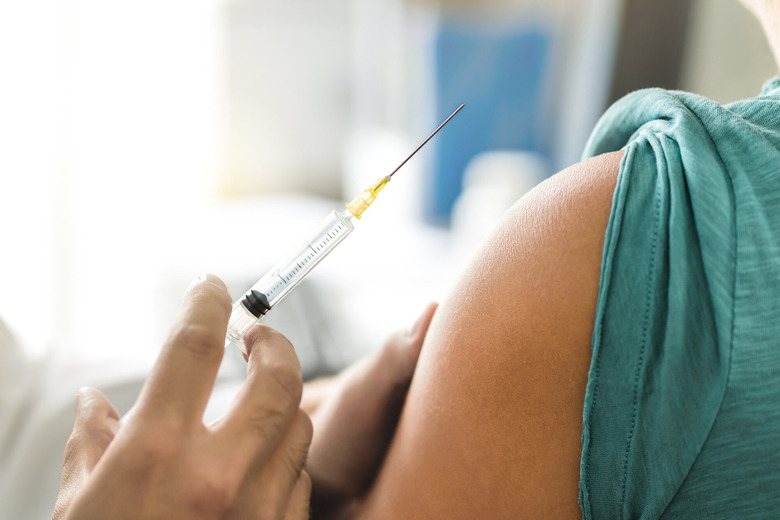Pfizer Just Made A Fantastic Announcement About Its Coronavirus Vaccine
- Pfizer says that coronavirus vaccine output will be greatly improved as the company has increased manufacturing efficiency.
- The company has reduced the time it takes to manufacture a batch of COVID-19 vaccines to 60 days from the initial 110-day average.
- Pfizer has also increased output at its three US-based plants involved in the vaccine manufacturing process.
Bloomberg put together a coronavirus vaccine tracker that calculates how long it'll take for a specific country or state to reach herd immunity — or vaccinate 75% of the population. As of Saturday morning, the world needed close to 7 years to vaccinate 75% of the population with two-dose vaccines. That's at a rate of more than 4.6 million shots per day. The main problem with the COVID-19 vaccine campaigns is that there simply aren't enough doses to go around, so most people who are not eligible for early immunization will have to wait several months to get their turn. But the number of available vaccine candidates is increasing, as more drugs have completed their Phase 3 trials in the past few weeks.
As for the vaccine candidates that were already authorized for emergency use, they're ramping up manufacturing. Now, Pfizer just confirmed that it's able to increase production significantly.
The Pfizer and BioNTech partnership was the first to produce an effective and safe vaccine candidate. Their mRNA drug was authorized for emergency use in mid-December. The drug is already in use in the US, Europe, Israel, and other countries, but the companies can't meet demand. The vaccine comes with a two-dose regimen, and the shots need to be administered at least three weeks apart.
Aside from determining the efficacy and safety of the drug during trials, Pfizer had to develop new production lines and procedures for a type of drug that has never been made before. Scientists figured out how to make the whole process more efficient, and they can now cut the production time for a batch of vaccines from 110 days to an average of 60 days.
"We call this 'Project Light Speed,' and it's called that for a reason," Chaz Calitri told USA Today. Calitri is Pfizer's vice president of operations for sterile injectables, and he runs the plant in Kalamazoo, Michigan. "Just in the last month, we've doubled output."
The report explains the Pfizer vaccine is made at three plants. The process starts in Chesterfield, Missouri, moves to Andover, Massachusetts, and ends in Kalamazoo, Michigan. The production system is based on how the vaccine was developed in the lab. With a regular vaccine, engineers would spend years improving efficiencies and cost-effectiveness, but that can't happen with a vaccine candidate during a pandemic.
"We just went right to commercial production," Calitri said. But engineers continued to analyze the production process to improve efficiencies. One of the things the engineers improved was the creation of the DNA material that starts the vaccine process. They initially needed 16 days for the process, but that timeframe is now reduced to 9 or 10 days. The engineers told USA Today that FDA regulations and best manufacturing practices are still being met despite the accelerated timelines for quality control and testing.
Pfizer has also increased output at all three plants and expects additional improvements in the coming months. "We just demonstrated to ourselves that we can go from a phone call in March to having now delivered 50 to 60 million doses," Calitri said.
